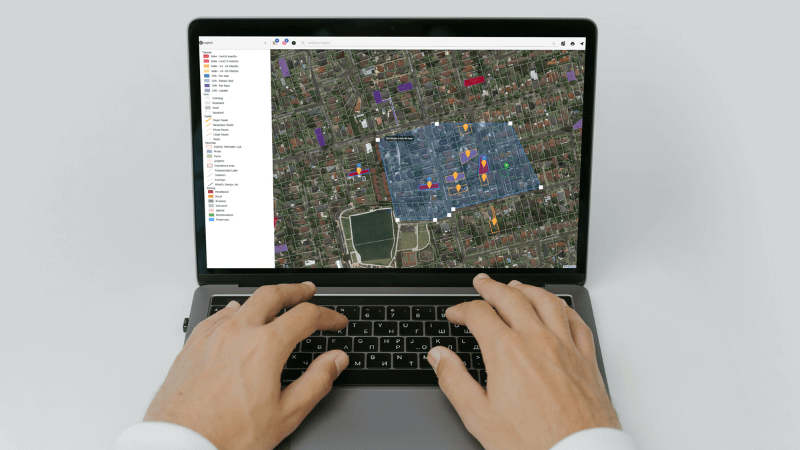4 min read – Covid and real estate
Australians are resilient – through fires, floods, drought and sizzling summer heat, we’ve proven time-and-time again we have the ability to pick ourselves up and keep going.
Those of you who work in the property industry are no exception to this ‘Aussie rule’. You’ve been through the upturns and downturns, and everything in between… and then comes Covid.
For possibly the first time in Australian history, restrictions designed to protect us also closed open homes and auctions.
While agents responded quickly and decisively, evolving to meet the requirements; some of the most important players in the property market – buyers and sellers – didn’t know how to navigate what had become a much more complex process.
As an agent, property data has never been more important than during Covid – both for you, and for the clients you serve.
It enables you to think and work more strategically, and to provide the expertise your clients need in order to feel comfortable making decisions during these unique times.
You can use data to overcome sensationalist market claims
Pre-covid, the news was often full of property headlines – claims about bubbles bursting, pending crashes, and soaring prices that leave first homeowners out in the cold.
Not surprisingly – we are Australia after all, and property is at our centre – most news outlets continued to highlight ‘market trends’ even as Covid infection rates climbed.
In normal times, buyers and sellers are influenced by these headlines but can find some security in our relatively stable society. During Covid, however, the ability to avoid fear and panic, to find reality, can be much more difficult to draw on.
As agents in this time, having access to quality and up-to-date data is an advantage for you and for your sellers and buyers. Using the latest market trends, you can explain to sellers that homes are in fact still being listed and sold, and you can show them that strong prices are frequently being achieved.
You can bring them evidence that the market hasn’t stopped and that if this is the time they had planned to sell, it is in fact, still the right time for them to do so.
For buyers, hanging on the headlines and waiting for that crash, you can similarly show any upward trends or even the stability of the market over time to help them see that not offering on the house they like now, might mean they miss out entirely.
Your local expertise combined with the hard evidence data can provide, can help you send a message that the property industry is still open for business.
Use data to make stronger and more informed business plans
Quality insights aren’t only of use to your buyers and sellers during times of uncertainty, they can also add an invaluable dimension to your own business plan, to enable you to continue to grow.
Rather than being caught up in the market prediction hype, you can get a real and evidence-based understanding of what is happening in your area, and beyond, in other areas that might influence your local economy.
Having this information can keep you grounded and prevent knee-jerk or risky decisions that can damage your business now and later on.
Likewise, data can enable you to identify new opportunities that you may have otherwise missed. While some sellers may shy away from a Covid market, others sell because they need to sell.
As agents know, one home sold successfully in a neighborhood can change the mentality of every homeowner nearby, creating a domino effect of listings.
Using current market data, often updated daily or weekly, you can pinpoint hotspots – areas of Covid confidence – by recent sales, and target them with carefully-crafted and relevant marketing.
Data allows you to be more strategic, to plan better and market smarter.
Use data to keep your estimated selling price up to date
Global, national or even local crisis – regardless of what it is, can affect the economy and in turn, the property market. It can be a time of great fluctuation, where realistic property prices can change from week-to-week.
Agents know a strong pricing strategy, combined with solid marketing, is at the heart of any effective sale. Having access to timely and comprehensive data, allows you to reassess properties in a few minutes, with just a few clicks, to reconsider your asking price.
It provides the evidence you need to take to sellers to revise the agreed price, so you can increase the appeal of the property when marketing.
Use data to grow your profile
In times of uncertainty, people look to experts to guide them – it provides them stability and comfort. Even if you aren’t listing or selling as much as you’d like to, now is the time to grow your profile as an expert.
Drawing on simple and fast searches, you can develop suburb profiles, reports or put a spotlight on recent sales in the area to highlight the state of the market.
With a tap or a click, you can export insights for digital sharing, upload them to your website and send them in regular email campaigns to your database.
During times of crisis or difficulty, people remember who provided guidance, insights and information and asked for nothing in return – using data to share your expertise is a great way to keep your personal and business brand top-of-mind and secure new business now and later on.
Clear pricing that just makes sense.
Sign up to National Property Data and receive unlimited access to 40 years of property history and insights, industry leading Mapping, customisable CMA builder, automated valuation and more.
"*" indicates required fields




